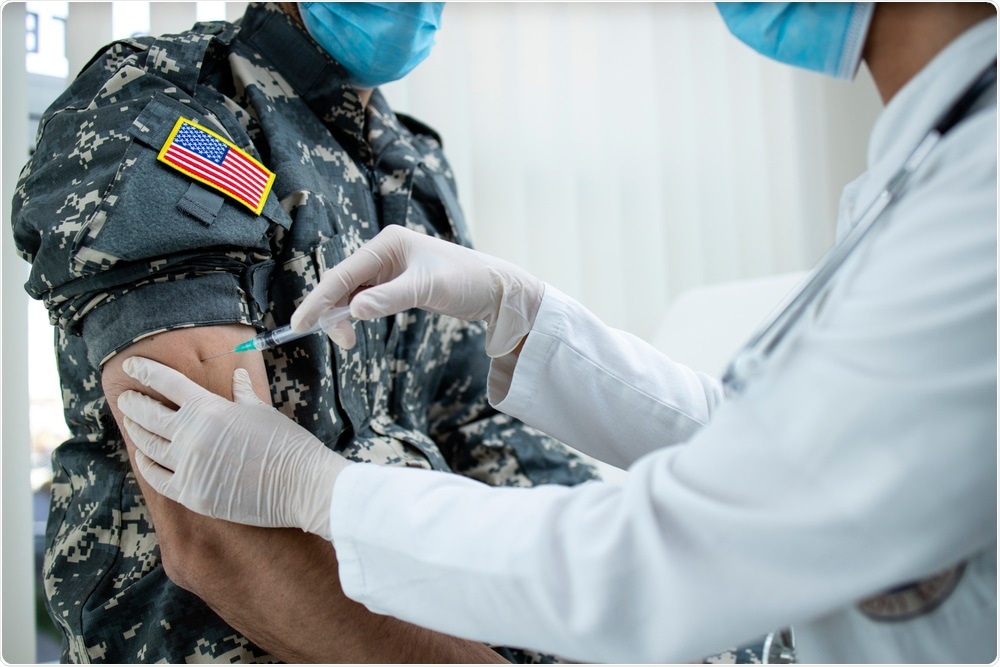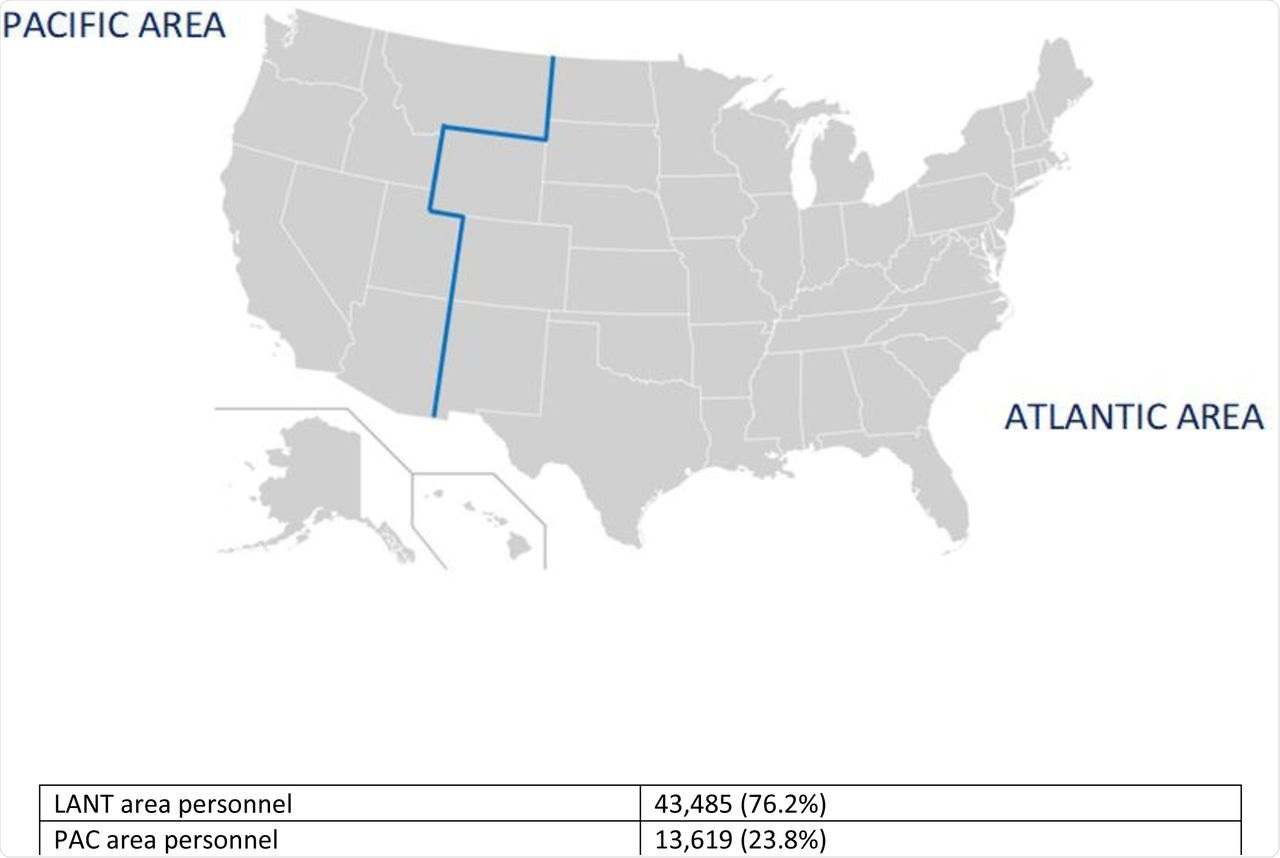The severe acute respiratory syndrome coronavirus 2 (SARS-CoV-2), which is the virus responsible for the coronavirus disease 2019 (COVID-19) pandemic, has spread worldwide and infected over 261 million people to date and caused the deaths of over 5.2 million. although any individual has the potential to be infected with SARS-CoV-2, those who work in certain settings have a higher probability of exposure to this virus.
 Study: Effectiveness of Vaccination Against Reported SARS-CoV-2 Infection in the United States Coast Guard Personnel Between May and August 2021: A Time-Series Analysis. Image Credit: Aleksander Malivuk / Shutterstock.com
Study: Effectiveness of Vaccination Against Reported SARS-CoV-2 Infection in the United States Coast Guard Personnel Between May and August 2021: A Time-Series Analysis. Image Credit: Aleksander Malivuk / Shutterstock.com

 *Important notice: medRxiv publishes preliminary scientific reports that are not peer-reviewed and, therefore, should not be regarded as conclusive, guide clinical practice/health-related behavior, or treated as established information.
*Important notice: medRxiv publishes preliminary scientific reports that are not peer-reviewed and, therefore, should not be regarded as conclusive, guide clinical practice/health-related behavior, or treated as established information.
Soon after the emergency use authorization (EUA) by the United States Food and Drug Administration (FDA) for two messenger ribonucleic acid (mRNA)-based vaccines manufactured by Pfizer and Moderna, the U.S. Coast Guard (CG) initiated vaccination for its personnel starting December 16, 2020. As of August 24, 2021, COVID-19 vaccination for military personnel was made mandatory by the U.S. Secretary of Defense. From August 26, 2021, the Commandant of the CG also followed suit for CG Active Duty and Ready Reserve personnel.
Although reports of COVID-19 vaccine effectiveness (VE) have been published following their authorization, none of these studies have focused on VE in the military population.
Vaccine effectiveness in U.S. CG
In a recent article published on the preprint server medRxiv*, researchers performed a time-series analysis to evaluate the effectiveness of COVID-19 vaccination in the U.S. CG against SARS-CoV-2 infection. CG who were vaccinated with any of the approved vaccines and those who tested positive for COVID-19 from May to August 2021 were included in the study.
Data on CG tested positive with SARS-CoV-2 was retrieved from Coast Guard Personnel Accountability and Assessment System (CGPAAS), whereas data on the vaccination status of CG were tracked from a wide immunization registry.
Study findings
The researchers estimated VE among CG personnel to be 82.6% during May 2021, which increased to 89.0% by June 2021. VE later decreased to 62.7% at the end of the study period in August 2021.
COVID-19 breakthrough cases remained below 1% in fully vaccinated CGs receiving either the Pfizer or Moderna vaccines. No severe outcome like hospitalization or death was reported for CG members who were fully vaccinated.
The study also found that the rate of breakthrough COVID-19 cases was noticeably higher for CG members who received the Johnson & Johnson vaccine during the first three months of the study and increased to nearly two and a half times the rate observed with Moderna or Pfizer recipients.
Further sub-analyses for the geographic area (Atlantic vs. Pacific) revealed that in June 2021, overall calculated VE was higher concerning either regional VE estimation, as the pacific region had a higher number of full vaccination and fewer cases of SARS-CoV-2 infection.
 Atlantic (LANT) and Pacific (PAC) Areas within the U.S. Coast Guard (Source: CGPAAS).
Atlantic (LANT) and Pacific (PAC) Areas within the U.S. Coast Guard (Source: CGPAAS).
Older individuals had wide variation in VE. During the initial month of May 2021, VE in these individuals was 100%; however, it decreased by -0.1 in July and 5.5% in August 2021.
During the initial study period, the researchers noted a lesser number of reported cases as compared to cases reported in July and August. The lowest VE was observed in the old age group, thereby suggesting that the effectiveness of mRNA vaccines may decrease with an increase in age.
The underreporting of verified vaccination status is one of the major limitations of the current study, as this might wrongly classify some individuals as not fully vaccinated. Also, the time since vaccination was not accounted for in the study.
Conclusions
The findings of the current study demonstrated that the overall VE among CG members decreased during the summer months in 2021 due to the spread of the Delta variant, although vaccination provided full protection against the severe outcomes of COVID-19. They suggested that a higher vaccination rate in military personnel can extend the disease-prevention benefits observed in this study.
The CG plans to continue monitoring and estimating VE for additional surveillance of other key public health and clinical measures related to COVID-19.

 *Important notice: medRxiv publishes preliminary scientific reports that are not peer-reviewed and, therefore, should not be regarded as conclusive, guide clinical practice/health-related behavior, or treated as established information.
*Important notice: medRxiv publishes preliminary scientific reports that are not peer-reviewed and, therefore, should not be regarded as conclusive, guide clinical practice/health-related behavior, or treated as established information.